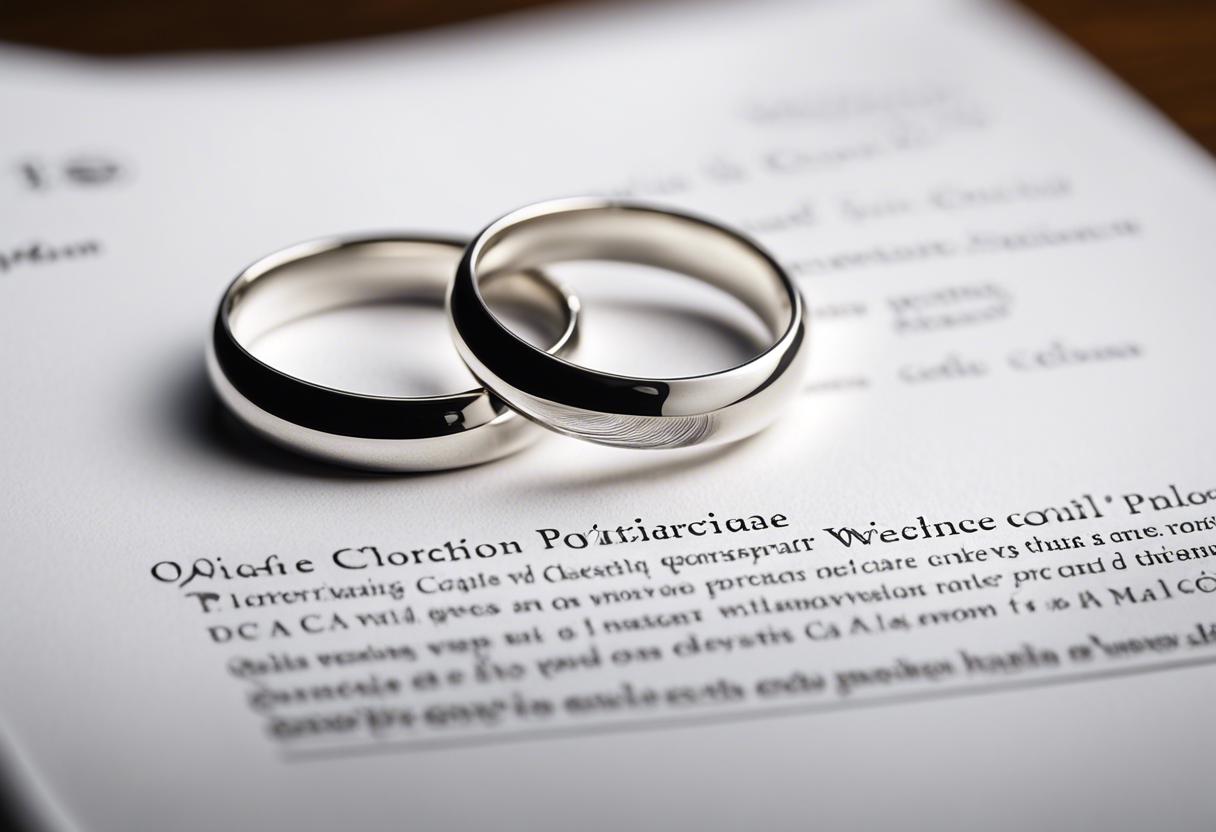A High Court Judge, Ms Justice Nuala Jackson, has decreed that a man must pay nearly €1,900 per month for the upkeep of his two children and offer €95,000, half the value of one of his pension funds, to his soon to be ex-wife. The divorce proceedings involve an Irish woman and a man who hails from a different European country.
Both individuals are working professionals who met and married in Ireland, but had set up home in another country, referred to as country B. However, following the breakdown of their multi-year relationship, the woman returned to Ireland with their offspring. The terms of separation were defined by the courts in country B and authorised the relocation of the children to Ireland to be in the care of their mother, outlining access rights for their father. Following complications with access, the man filed a court case and last year, new access arrangements were made, due to be reassessed next year.
The agreement made in country B mandated the man to pay a monthly fee of €5,880 for the upkeep of his children along with half of his net annual bonus, lowering the amount from €8,350 previously owed before the children moved. The allocation of the couple’s assets, inclusive of the revenue from the sale of the family’s residence, was managed by the courts in country B.
Both parties sought a divorce decree from Ms Justice Jackson, which calls for proof of sufficient provision for them and thier dependent children. Various circumstances have changed since the rulings made by the courts in country B, including the fact that the man procured a house in Ireland for himself and his new partner, sharing the mortgage costs.
The man and his soon to be ex-wife have since switched their jobs resulting in an annual income of €135,000 for him and €105,000 for her. Both are entitled to annual bonuses. The man proposed a cut in the monthly child maintenance fee to €1,300. On the other hand, the woman advocated for €3,000 given that she’s renting her current accommodation and wants to acquire a home expected to cost around €450,000, with the loan repayments primarily being her responsibility.
The verdict of Ms Justice Jackson regarding adequate provisions was contingent on the present financial status of both parties and their pension arrangements.
It was revealed that a man’s approach to his house purchase was “prudent”, but the method of acquiring the funds and repayment using a loan with a term of seven years seemed geared towards reducing his disposable income. Additionally, he purported that maintenance and upkeep of his newly acquired residence would require an “exorbitant” €660 a month.
Moreover, his ambition to make the most of his pension by making the highest pension contributions was commended as “reasonable”, but this should not come at the expense of his children’s welfare and particularly not while some support payments were still outstanding. Included among other matters was his intention of purchasing a significantly larger and more opulent vehicle—an arrangement that would entail €688 monthly installments.
The judge, whilst taking note, highlighted that the woman had a net employment income of €6,500 every month—factoring in bonuses and a car allowance—along with child support. Her monthly rent stood at €3,500, on top of which there were childcare expenses.
The woman’s position, as estimated by the judge, sees her with €120,000 set aside for a house deposit. However, her heavy rental burden could necessitate dipping into some of her accumulated capital to cover living expenses in the near future.
The judge proposed that the total direct out-of-pocket monthly expenses for the children, amounting to €2,573, should be evenly split between both parties, which would mean each contributes €1,286. After working out the man’s proportion of the living expenses for both children, an additional €600, his monthly support payments came to €1,886.
The judge factored in the man’s impending expenses for another child expected with his new partner.
As for pensions, the judge ordered the man to share half of his private pension, valued at €95,000 up to the time of divorce—leaving him with his contributory pension from his home country and another pension. The woman was allowed to retain €110,000 from a pension in her possession.

